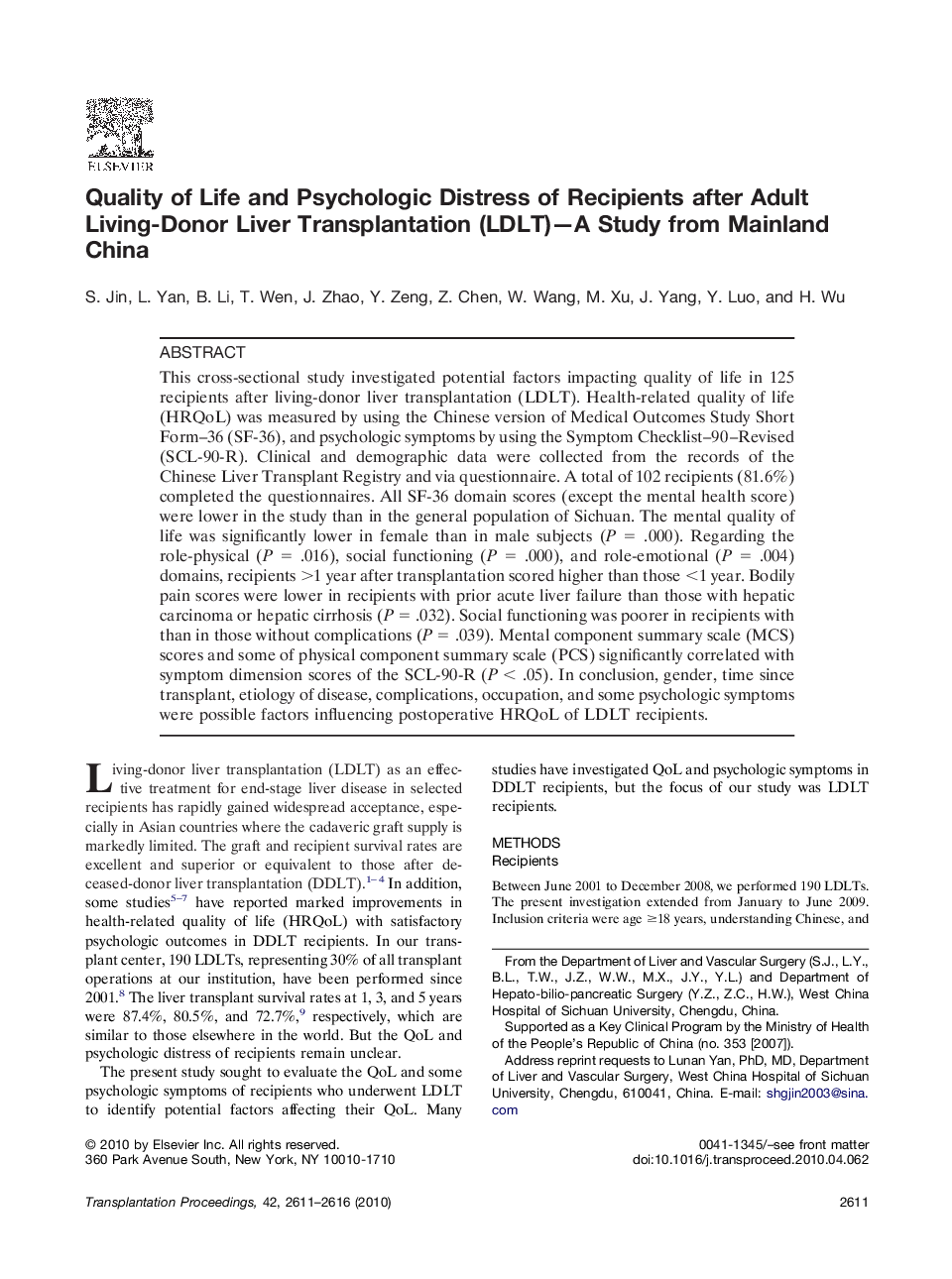| Article ID | Journal | Published Year | Pages | File Type |
|---|---|---|---|---|
| 4259448 | Transplantation Proceedings | 2010 | 6 Pages |
This cross-sectional study investigated potential factors impacting quality of life in 125 recipients after living-donor liver transplantation (LDLT). Health-related quality of life (HRQoL) was measured by using the Chinese version of Medical Outcomes Study Short Form–36 (SF-36), and psychologic symptoms by using the Symptom Checklist–90–Revised (SCL-90-R). Clinical and demographic data were collected from the records of the Chinese Liver Transplant Registry and via questionnaire. A total of 102 recipients (81.6%) completed the questionnaires. All SF-36 domain scores (except the mental health score) were lower in the study than in the general population of Sichuan. The mental quality of life was significantly lower in female than in male subjects (P = .000). Regarding the role-physical (P = .016), social functioning (P = .000), and role-emotional (P = .004) domains, recipients >1 year after transplantation scored higher than those <1 year. Bodily pain scores were lower in recipients with prior acute liver failure than those with hepatic carcinoma or hepatic cirrhosis (P = .032). Social functioning was poorer in recipients with than in those without complications (P = .039). Mental component summary scale (MCS) scores and some of physical component summary scale (PCS) significantly correlated with symptom dimension scores of the SCL-90-R (P < .05). In conclusion, gender, time since transplant, etiology of disease, complications, occupation, and some psychologic symptoms were possible factors influencing postoperative HRQoL of LDLT recipients.
